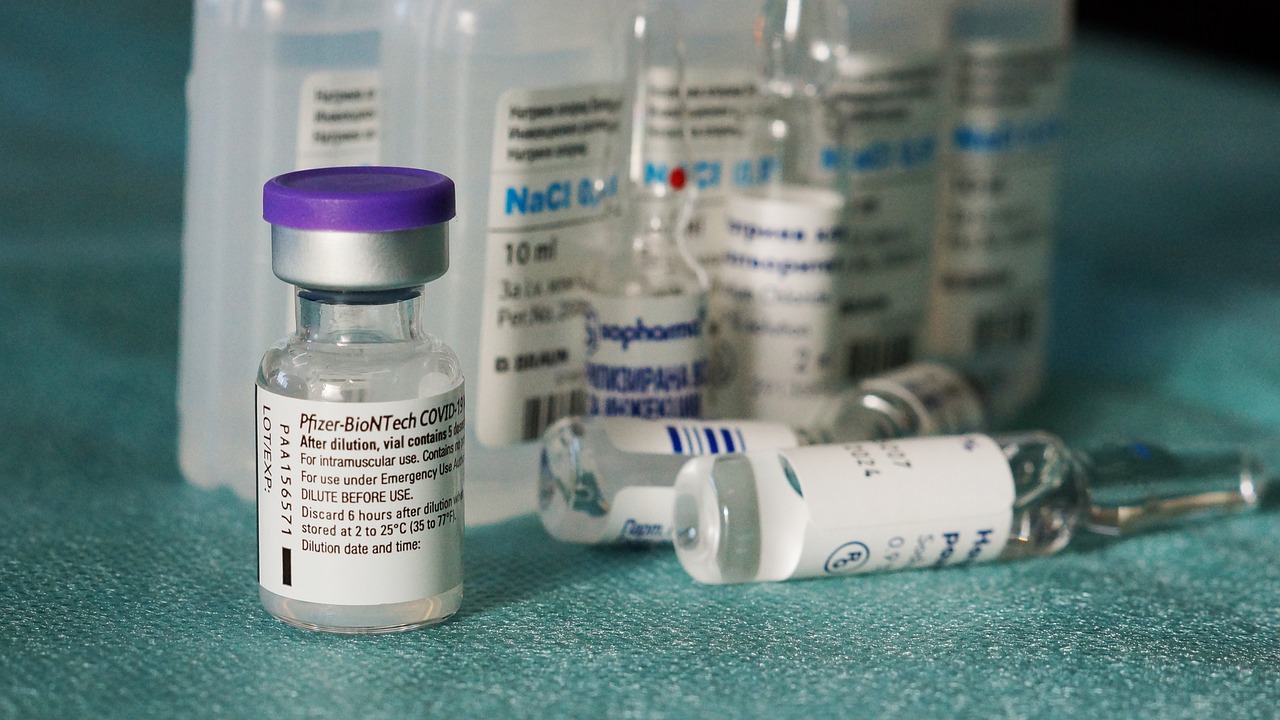Although Pfizer’s COVID-19 vaccine was reportedly manufactured with messenger RNA (mRNA), the U.S. Food and Drug Administration’s (FDA) product label shows it contains artificially modified RNA—a key ingredient that is not naturally occurring and poses a substantial risk to human health.
According to Pfizer and BioNTech’s COVID-19 vaccine label in the FDA’s Fact Sheet for Healthcare Providers, each Pfizer vaccine dose for children ages 5 through 11 contains 10 micrograms (mcg) of modRNA, while fully-approved Comirnaty authorized for use in individuals 12 years of age and older contains 30 mcg of modRNA.
Pfizer, on its website, confirms its COVID-19 vaccine contains modRNA: “ModRNA stands for nucleoside-modified messenger RNA and in the synthesis of the RNA used in this vaccine platform, some nucleosides, which are important biological molecules that constitute DNA and RNA, are replaced by modified nucleosides to help enhance immune evasion and protein production.” The company says modRNA instructs the cells to produce desired proteins.
Yet the Centers for Disease Control and Prevention (CDC) states on its website (pdf) that mRNA COVID-19 vaccines are “made of mRNA,” or “messenger RNA.”
According to the agency, the mRNA in COVID-19 vaccines such as Pfizer and Moderna is created in a laboratory and teaches cells how to make harmless pieces of spike protein that trigger an immune response inside the body. The mRNA from mRNA-based vaccines is broken down within days after vaccination and eliminated from the body. In its description of mRNA and how COVID-19 vaccines work, the CDC makes no reference to modRNA or indicates that the RNA used in COVID-19 vaccines has been modified.
Messenger RNA occurs naturally and lives in our cells, and it does not last long enough to initiate an immune response before being destroyed by the immune system—it is modRNA that is synthetically created, according to Klaus Steger, a molecular biologist who headed several gene technology laboratories, regularly applying RNA-based technologies.
Unlike mRNA, modRNA modifies one of four compounds in RNA that make it last longer in the body, less immunogenic (reduced stimulation of the innate immune system), and more efficient at producing a protein—in this case, the spike protein, Mr. Steger stated. Since modRNA cannot target specific cells to make viral protein, it can attack perfectly healthy cells and bypass protective barriers in the body, like the blood-brain barrier.
Injecting modRNA into the body may lead to adverse events like strokes, cardiovascular complications, pulmonary embolism, and the formation of blood clots—many of which were disclosed in Pfizer’s documents (pdf) but were not attributed to its product.
“It is my opinion that, at a minimum, the intentional use of mRNA—an acronym well-known to stand for messenger RNA along with the endless statements about the vaccines being based on naturally occurring messenger RNA constitute misbranding in violation of a number of laws,” Ohio-based attorney Thomas Renz told The Epoch Times in an email.
“There is a legal and moral duty to provide informed consent, and to misrepresent a drug that was intended to be a gene therapy as a vaccine containing “natural messenger RNA” is an apparent violation of both of those duties.”
Ask me anything
Explore related questions





